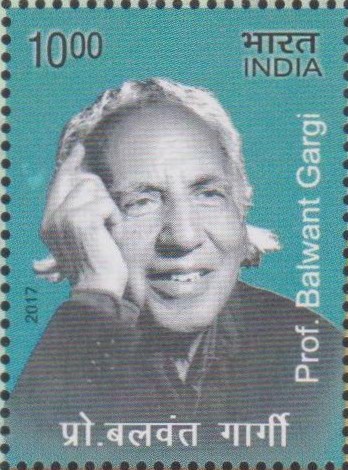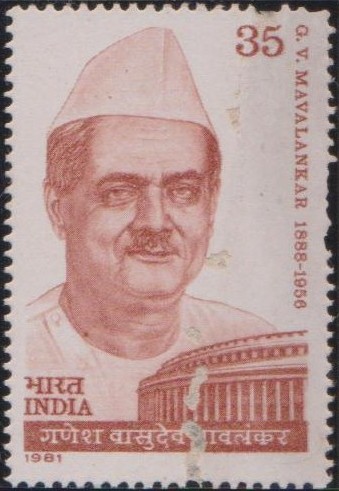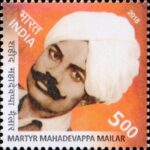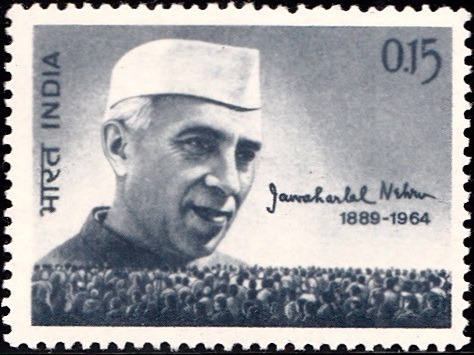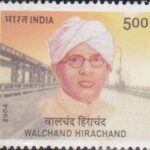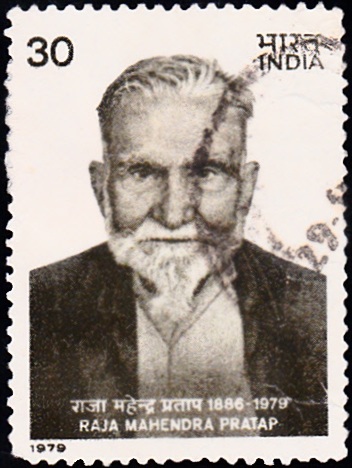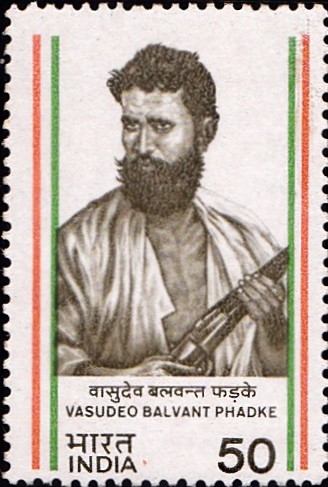
Vasudeo Balvant Phadke
A commemorative postage stamp on Vasudev Balwant Phadke, an Indian freedom fighter and revolutionary, father of Militant Nationalism in India, co-founder of Maharashtra Education Society (MES) :
 Issued by India
Issued by India
Issued on Feb 21, 1984
Issued for : Indian Posts and Telegraphs Department is privileged to issue a commemorative stamp in honour of this great revolutionary.
Description of Designs : The stamp has been designed by C. R. Pakrashi and the first day cover by India Security Press, Nasik. The cancellation has been designed by Alka Sharma.
Type : Stamp, Mint Condition
Colour : Multicolour
Denomination : 50 Paise
Overall size : 4.06 x 2.73 cms.
Printing size : 3.70 x 2.40 cms.
Perforation : 13 x 13
Paper : Unwatermarked P. G. matt coated stamp paper
Number printed : 15,00,000
Number per issue sheet : 40
Printing process : Photogravure
Printed at : India Security Press
Name : Vasudev Balwant Phadke
Born on Nov 4, 1845 at Shirdhon village, Panvel taluka, Raigad district, Maharashtra, India
Died on Feb 17, 1883 at Aden, Yemen
About :
- Vasudeo Balwant Phadke is regarded as the first revolutionary of modern India to take up arms to drive away the British. He has been called the father of the armed struggle for India‘s freedom and it is said that it was he who inspired Bankim Chandra Chatterjee to write the patriotic novel “Anand Math“. This pioneer revolutionary who died at Aden, about 100 years ago, was a valiant fighter, true to the tradition of the Peshwas and the Marathas. He derived his inspiration from Shivaji the second.
- Vasudeo was born on 4th November, 1845 at village Shirdhon in Raigad district. He learnt wrestling, fencing and riding and became an expert in use of arms. He did not have much of a taste for book learning and after studying upto high school gave up his studies and took up various jobs.
- He joined the public agitation for redressing people’s grievances at Pune in 1870. He also took a vow to use only Khadi clothes and Swadeshi articles. He founded an institution named Aikya Vardhini Sabha for ventilating people’s grievances and, in 1874, established the first school of national education in Pune. Vasudeo was unable to see his dying mother on account of delay in getting leave from his office. His anger and grief knew no bounds and this incident was a turning point in his life.
- In 1875, the Gaikawad of Baroda was deposed by the British and this hurt the sentiments of people in Maharashtra. This was also the period of a severe famine in the state. Vasudeo was greatly affected by scenes of death and devastation and the callousness of the British rulers to the woes of the people. He started giving public speeches on the miserable state of the country. He toured the Deccan districts criticising the administration in vehement terms. Echoing the words of Thoreau, he thundered that it was the right of all men to refuse allegiance to and to resist the government when its tyranny or inefficiency was great and unendurable. He told his countrymen that Swaraj was the only remedy for their ills and asked them to strive for their independence.
- His efforts did not have any impact on the educated class and he, therefore, turned to the Ramoshis and Kolis, Bhils and Dhangars to organise a revolt. He gathered round him a band of about three hundred desperate men and set to work on his objective of overthrowing the British power in India. He founded a secret organisation and organised raids on the rich businessmen to obtain funds for the liberation of the country. He wanted to organise simultaneous attacks in all parts of the country with disruption of communication links. His efforts, however, met with only very limited success and he was greatly disappointed. The Government, meanwhile, to the danger and offered a reward for his capture. Undaunted, he issued a proclamation threatening the government with dire consequences and offered a reward for the capture of the Governor of Bombay. He moved over to Nizam‘s territories to recruit Rohilla and Arabs to his cause.
- He was captured in Nizam’s dominion in July 1879. His own diary and autobiography were the two major documents produced as evidence against him. He was sentenced to transportation for life and was considered too dangerous to be kept even at the Andamans. He died in prison at Aden on 17th February, 1883.
- (The above text is based on material published elsewhere and/or supplied by the sponsors).


